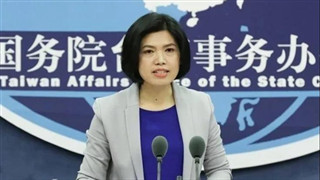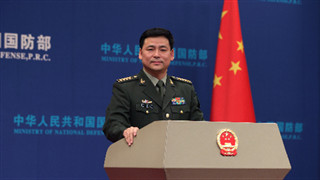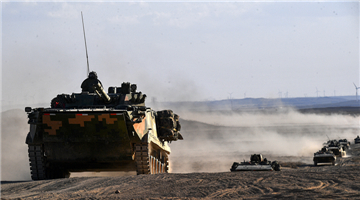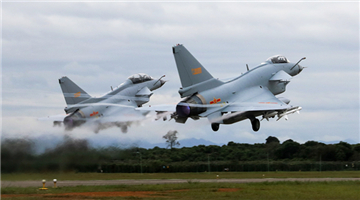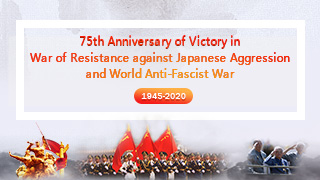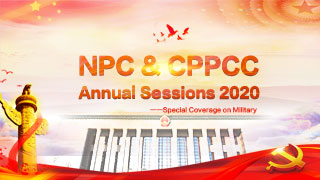
By He Lei
This year marks the 70th anniversary of the Chinese People's Volunteer Army (PVA)'s active and arduous participation in the Korean War (1950-53) against the US.
Seventy years ago, when the US forces invaded the Democratic People's Republic of Korea (DPRK), brought the war to China's northeastern border and occupied the island of Taiwan, whether China should send its troops to fight or take on the US in the face of aggression from a strong enemy and the threat of war was a crucial strategic issue politically, militarily and diplomatically.
The Communist Party of China (CPC) Central Committee and Chairman Mao Zedong were far-sighted. Confronted with the extreme difficult and complicated domestic and international situation, in the face of great disparity in strength between ourselves and the enemy, they assessed compressively the pros and cons for the two sides, and with enormous political encouragement and extraordinary strategic determination, they resolutely made the historic decision to resist the US, aid the DPRK and safeguard China.
After two years and nine months of bloody fighting, the PVA won a great victory in the war. The war demonstrated the national prestige of the People's Republic of China (PRC) and the military power of the people's army. It displayed the status of China as a real world power and the self-esteem and confidence of the Chinese nation. It ensured a relatively stable and peaceful environment for a long period of time. It also created the miracle in which the weak beat the strong and an army with inferior equipment defeated the enemy with superior equipment, shattering the myth that US imperialism is invincible.
Now 70 years later, the world is changing in a way unseen in a century. In particular, due to the impact of the ravaging COVID-19, major changes have taken place in the international strategic landscape, and China's security is facing severe challenges. Revisiting the essence of China's strategic decision-making during the Korean War, and deriving strategic will, strategic wisdom and spiritual strength from it is of great significance to the continuous victory of the great struggle with new historical characteristics.
To undertake the great struggle in the new era, we must have the will to fight and the confidence to win. We should always bear in mind the incomparable strength and correct leadership of the CPC and the significant advantages of the socialist system with Chinese characteristics.
The solid national strength accumulated since the founding of the PRC in 1949, the great power of the just war and people's wars, and the fearless heroism of the Chinese nation and the people's army are the deep foundation for us to calmly respond to and overcome any risks and challenges. It is also the political advantage for us to have the courage to fight, be good at fighting and dare to win.
There are a lot of things we can learn from China's participation in the Korean War.

First, to safeguard national security interests and actively carry out international struggles were the realistic considerations for the CPC Central Committee and Chairman Mao in making the decision to send troops to resist US aggression and assist the DPRK.
China and the DPRK share borders. If the entire DPRK was occupied by the US, US troops would be stationed along the Yalu River bordering the DPRK, and China's national security would be seriously threatened.
After the outbreak of the Korean War in 1950, both capitalist and socialist camps regarded the Korean Peninsula as the focal point of the struggle and a battleground. The CPC leadership believed that the war was not only a matter related to the DPRK as a fraternal state and a matter of vital interest linked to China's northeastern regions, but also an important issue of international struggle. Sending troops was a positive and correct decision, a decision that was beneficial to China, the DPRK, the East and the world.

Second, to engage in one decisive fighting to avoid being forced to fight 100 times was the overall consideration of the CPC Central Committee and Chairman Mao in sending troops to participate in the Korean War. After the founding of the PRC, the US adopted a hostile policy toward China by isolating it politically, imposing a blockade economically, and encircling it militarily.
Chairman Mao pointed out that the US wanted to put three sharp knives in our body - one in our head from the DPRK, one in our waist from the island of Taiwan, and one in our feet from Vietnam; if the world changed, the US would attack us from the three directions, and we would be in a passive position.
Resisting the US and assisting the DPRK meant denying the US wishful thinking. History has proved that after China's victory in the Korean War, the US no longer dared to try to make military invasion of China.
Third, laying a solid foundation for the long-term peace and development of China was the overall consideration of the CPC Central Committee and Chairman Mao to make the decision.
After the founding of the PRC, there was an urgent need for peaceful development. China could not ignore US attempts to control the whole of the DPRK. Even if the US did not cross the Yalu River, China would have to live under US threat from time to time, and would have difficulties in having peaceful development.
Sending troops was not only intended to resist the US and aid the DPRK, but also to protect China and win a long-term and relatively stable peaceful environment for the country. History has proved that China has had a period of peaceful development for nearly 70 years. One important reason is that it benefited from the great decision and victory in the Korean War.
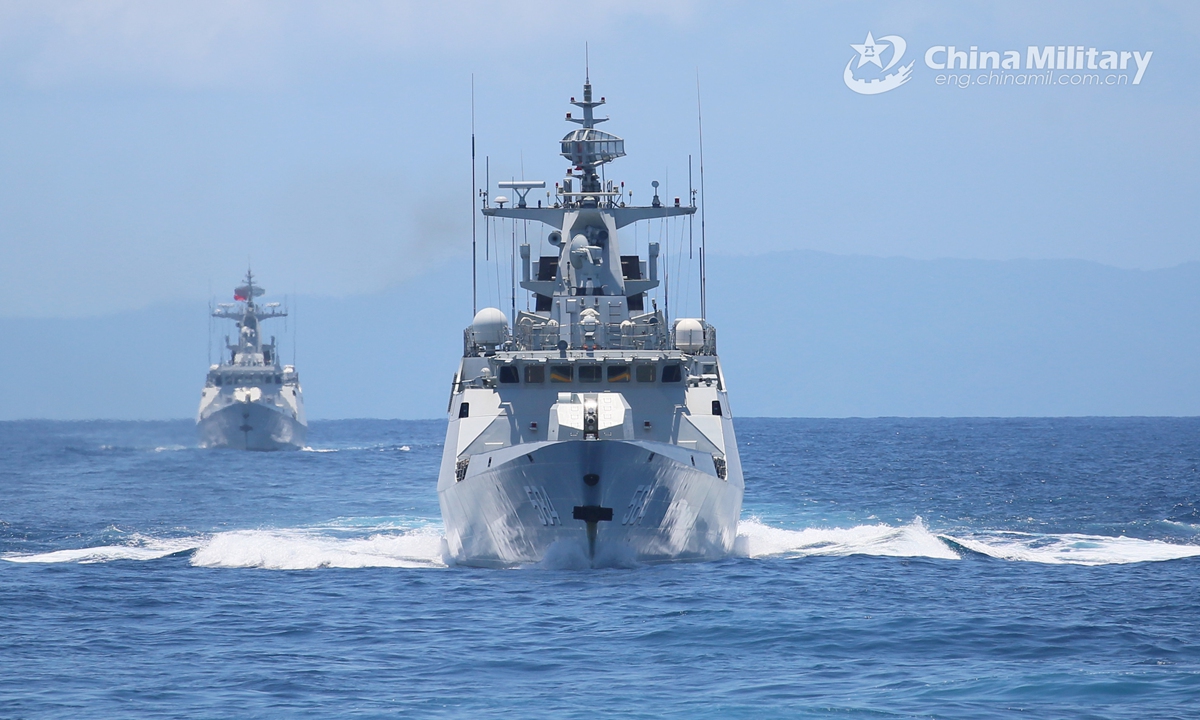
In the new era, when engaging in great struggles with many new historical features, we must be good at taking into account both the present situation and the long-term scenarios, and ensure that the socialist ship with Chinese characteristics is able to brave the stormy waves and maintain the stability to go far. We must continue to make a strong country and strong armed forces the greatest anchor for our security.
We must make achieving the "two centenary goals" and realizing the Chinese dream of national rejuvenation the biggest political tasks of all. We need to maximize the unity of the current and long-term interests, and make a combination of political, military, diplomatic, economic, legal and other efforts.
The smoke of the Korean War has long gone, but the root of modern wars has not been eliminated. The world today is anything but a tranquil place. Hegemony and power politics still exist, local wars and armed conflicts continue, and China's security situation is severe and complex.
We must have a clear understanding of the situation, discard illusions, strengthen our awareness of potential dangers, and firmly establish the idea that we are always the fighting team. We must carry forward the spirit of fighting and the art of fighting gained from the Korean War.
We will work hard to cultivate the will to fight, strengthen our sense of mission, responsibility and urgency to be ready for war, and make solid progress in training and preparing for war in a combat-ready state.
We will effectively enhance our ability to fight and win wars, resolutely safeguard China's sovereignty, security, and development interests, and effectively fulfill the sacred missions and tasks the people's army has been entrusted in the new era.
The author is PLA lieutenant general, distinguished chief expert and a research fellow of the PLA Academy of Military Sciences.



